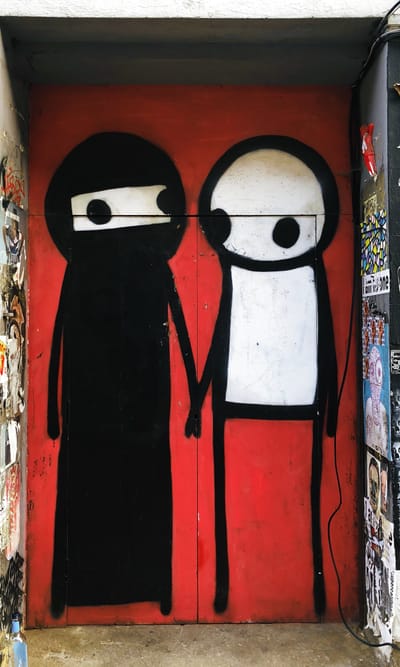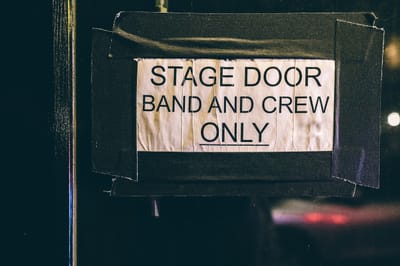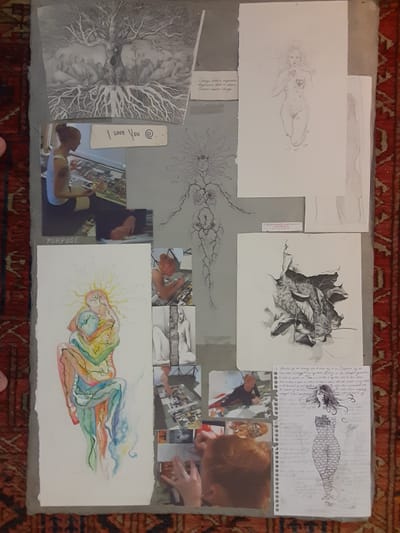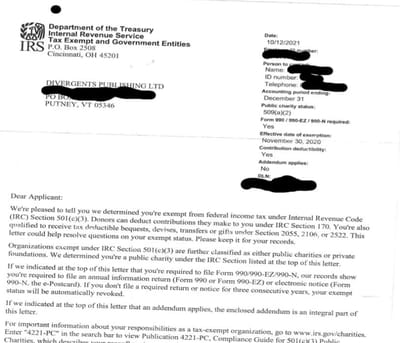The Laurinburg InstituteLeon Rice
"The Laurinburg Institute taught me how to live and thrive in America while being black."At the turn of the last century, education was not readily accessible to African Americans. Public schools were not open for blacks in the south, for many reasons—share cropping, black codes, and the fact that America was just 41 years out of slavery. The farm owners did not want educated African Americans; they wanted fieldhands to pick crops. It did not make economic sense to the land owners, who preferred to keep the workers illiterate. If members of the black community wanted an education, they’d have to do it for themselves.
In 1904, Emmanuel And Tinny McDuffie came from Alabama by foot to Laurinburg, North Carolina to start a school for the black community. This came about through the request of a local businessman, W.P. Evans, who wrote to Booker T. Washington at the Tuskegee Institute asking for help to educate the growing black population of his town. Tuskegee had no one available to help and turned to Mr. William Edwards at Snow Hill Academy in Alabama for a recommendation. He nominated the McDuffies, recent graduates of Snow Hill, who readily agreed to go to North Carolina. When they got to Laurinburg, the McDuffies and the Laurinburg community founded and built the school on a small parcel of swampland. With 15 cents in the treasury and its first student starting in September of ‘04, Laurinburg Institute was born.
Laurinburg was one of more than 100 black boarding schools along the east coast and in the deep south. Today only a few still survive. Nevertheless, schools like Laurinburg Institute—or Piney Woods in Mississippi—are needed now, maybe more than ever. They are life saving institutions for many young black men and women coming from the inner cities and poor rural areas of America. One only needs to look at what’s happening in black America today to see why.
In 1954, thanks to the Supreme Court, desegregation in public schools became the law of the land. School systems suddenly needed to accommodate many more students, and found they were in need of new buildings. In Scotland County, where Laurinburg was, officials asked the McDuffie family to transfer the school over to the county so they could avoid having to put up a new brick building. The McDuffie family had the sense to refuse the request, and the county threatened to shut the school down. The institute was moved, brick by brick, to where it stands today, in order to escape further troubles.
There are many prep schools in every population center in the US, but very few prepare students the way Laurinburg Institute does. The Institute teaches the whole person, explicitly teaching the skills you need to navigate the majority culture as well as academic skills and athletic skills you find at most prep schools.. They teach you how to carry yourself as an African American and be successful in life well after your high school days are gone.
Not many secondary schools teach young black men how to handle adversity and setbacks as stepping stones to get to their goals. Laurinburg’s motto is “Deeds not Words”—students learn to assess, adapt, and overcome the many challenges that young black men and women face. I remember seeing kids come to Laurinburg Institute as weak students, struggling academically, and with a poor sense of themselves in the world. The faculty would work with students one-on-one to get them up to speed. They were doing this long before all the advances for students with learning differences came along. Their model was to take each student as they were, and to work with her or him as a unique person.
At Laurinburg Institute every moment in the day was a teaching moment—way beyond the usual curriculum. I remember going to the store and a member of the faculty asked me, “Do you really need that?” He asked me to think about where I spent my money and what I spent it on. The question would become, “Is this a need or a want?” This lesson was taught to me by the Headmaster and President of the school, Dr. Frank McDuffie Sr. He taught us that every dollar is power, capital power. He encouraged us to think about who we handed that power to, so we wouldn’t blindly give it to those who didn't care about our community. That’s a lesson every school should teach, that capital is the true power in the US.
It seemed that at the Institute you could catch a lesson at any time. I got schooled on everything. Once I was reading a book called the Black Titan about the life of A.G. Gaston, a black businessman and millionaire. Dr. McDuffie and his brother caught me reading it, so right then and there they told me to complete a book report for them, due by Monday—less than a week away. Well, Monday came and I remember quietly handing the assignment to the secretary, hoping I could avoid having to talk about it. I knew if I handed it in to Dr. McDuffie, he’d ask a bunch of questions and I’d have to talk. I thought I was in the clear, but later in the day Dr. McDuffie caught me at the end of an assembly and had me tell the whole school about the book. What started as a book report turned out to be a lesson on being able to speak in public. By me being put on the spot, this experience taught me how to rise to the occasion and get things done. There were no shadows to exist in at Laurinburg.
These lessons have served me well, way beyond the usual prep school education of academics and sports and leadership. Now, I could sit here and name all the famous people who came through Laurinburg to show I’m not the only one who left there and made good in the world. But that’s not the kind of success I’m talking about. Let me get to the heart of the matter: The Laurinburg Institute taught me how to live and thrive in America while being black. That’s been a huge influence in my life, and schools like Laurinburg and Piney Woods provide a model for how we could reach the divergent community.
Laurinburg Institute trains students to succeed by fundamentally understanding the challenges they face and providing role models who can show you the way through them. The schools recruit students who would ordinarily never have the chance to attend a private school, kids from the inner cities of America or war-torn countries where life has little value. The Laurinburg model takes these students—many of whom have already been written off by society—and helps them find the skills and confidence to face a world that will use any excuse to write them off.
So, students like me—struggling to find their confidence in a world of misunderstanding and institutional barriers—are transformed into confident, active members of society. We go out into the world armed with the tools of argument and research and evidence, as well an understanding of the ways we do fit into society. All schools should follow the example of Historically Black institutions like Laurinburg and remove the shadows that the divergent community exists in right now. When the faculty and community all fundamentally understand the issues facing the students, they can be taught to adapt and overcome, no matter what obstacles we face. I learned that at Laurinburg, and it’s a lesson that’s lasted.



